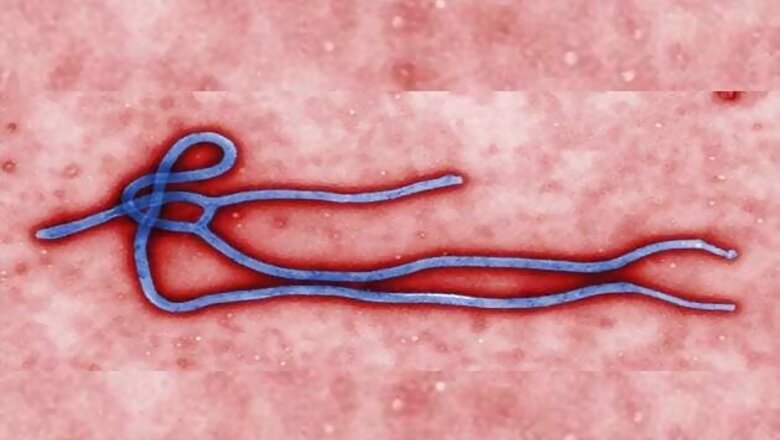
views
New York: A team of researchers think they have pinpointed how the Ebola epidemic in West Africa started with a small boy playing in a hollowed-out tree where infected bats lived.
The researchers explored an area in southeastern Guinea where 2-year-old Emile Ouamouno fell ill a year ago and died. Health officials believe he was the first case in the epidemic, which wasn't recognised until spring.
The Ebola virus wasn't found in the bats they tested, the scientists reported in a study published. But they came away believing that the boy got it from the bats that had lived in the hollow tree.
The Ebola epidemic is the worst in world history, blamed for killing nearly 8,000 people across West Africa this year. The epidemic's exact origin has never been determined, but the virus is thought to spread to people from some sort of animal.
Many experts have suspected some species of fruit bat, though some wonder if West Africa's epidemic started through another animal like a chimpanzee or small antelope that was perhaps infected by bats and then eaten by people.
The researchers saw no signs that Ebola had affected larger animals around the boy's small village of Meliandou. They also found no evidence of the virus in tests of 169 bats, including fruit bats.
Then they learned that a large colony of small, smelly bats with long tails lived in a hollow tree near the boy's home. Villagers told the researchers that the tree caught fire in March, causing a "rain of bats" to emerge from the tree.
The study, led by researchers at the Robert Koch Institute in Berlin, was published yesterday in EMBO Molecular Medicine. They said more research should be done on the bats as possible Ebola carriers.
Liberia's government announced it will allow families to bury Ebola victims in a special plot of land instead of requiring that the bodies be cremated so as not to spread the virus.
Ciatta Bishop, head of Liberia's national Ebola burial team, said the government has secured 25 acres where Ebola victims can now be buried. More than 2,000 suspected Ebola victims have been cremated since the cremation decree was ordered at the height of the crisis in Liberia several months ago.
The corpses of Ebola victims are highly contagious, and many of those who washed or touched bodies before the burials contracted the disease.
The cremation decree is highly unpopular in Liberia, where funeral traditions are carefully followed and are considered a sacred obligation to the deceased. Many families have tried to secretly bury their relatives' bodies to avoid them being taken away by burial teams to face cremation.
Most of the Ebola deaths have been in Liberia, Guinea and Sierra Leone.




















Comments
0 comment